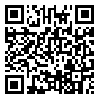Thu, Feb 19, 2026
[Archive]
Volume 4, Issue 1 (3-2014)
Iran J Ped Hematol Oncol 2014, 4(1): 26-31 |
Back to browse issues page
Download citation:
BibTeX | RIS | EndNote | Medlars | ProCite | Reference Manager | RefWorks
Send citation to:



BibTeX | RIS | EndNote | Medlars | ProCite | Reference Manager | RefWorks
Send citation to:
Manoochehri J, Masoumi Dehshiri R, Faraji H, Mohammadi S, Dastsooz H, Moradi T, et al . Family screening for a novel ATP7B gene mutation, c.2335T>G, in the South of Iran. Iran J Ped Hematol Oncol 2014; 4 (1) :26-31
URL: http://ijpho.ssu.ac.ir/article-1-155-en.html
URL: http://ijpho.ssu.ac.ir/article-1-155-en.html
J Manoochehri 
 , R Masoumi Dehshiri
, R Masoumi Dehshiri 
 , H Faraji
, H Faraji 
 , S Mohammadi
, S Mohammadi 
 , H Dastsooz
, H Dastsooz 
 , T Moradi
, T Moradi 
 , E Rezaei
, E Rezaei 
 , Kh Sadeghi
, Kh Sadeghi 
 , M Fardaei *
, M Fardaei * 


 , R Masoumi Dehshiri
, R Masoumi Dehshiri 
 , H Faraji
, H Faraji 
 , S Mohammadi
, S Mohammadi 
 , H Dastsooz
, H Dastsooz 
 , T Moradi
, T Moradi 
 , E Rezaei
, E Rezaei 
 , Kh Sadeghi
, Kh Sadeghi 
 , M Fardaei *
, M Fardaei * 

Abstract: (8737 Views)
Background
Wilson disease (WD) is a rare autosomal recessive disorder, which leads to copper metabolism, due to mutations in ATP7B gene. The gene responsible for WD consists of 21 exons that span a genomic region of about 80 kb and encodes a copper transporting P-type ATPase (ATP7B), a protein consisting of 1465 amino acids. Identifying mutation in ATP7B gene is important to find carrier individuals for proper counseling. A novel mutation in exon 8 of ATP7B gene, c.2335T>G (p.Trp779Gly), with severe neuropsychiatric condition in the South of Iran, was recently identified.
The aim of this study was to screen 120 individuals from a large family using a simple amplification refractory mutation system PCR (ARMS-PCR) for carrier screening in the South of Iran.
Materials and Methods
120 individuals from family relatives of an index case in the Nasr Abad, south of Iran, were studied for screening of the c.2335T>G mutation. One patient with homozygous mutation and one homozygous normal individual were used as controls in this experiment.
Results
Altogether, 16 out of 120 (13.3%) individuals within this region had heterozygous mutation. One individual with homozygote mutation was also identified.
Conclusion
Identification of carriers in families with affected individuals is of great importance for counseling before marriage. The results of this study can be used for further counseling programs in this population.
Type of Study: Research |
Subject:
Heart
Received: 2014/03/15 | Accepted: 2014/03/15 | Published: 2014/03/15
Received: 2014/03/15 | Accepted: 2014/03/15 | Published: 2014/03/15
| Rights and permissions | |
 |
This work is licensed under a Creative Commons Attribution-NonCommercial 4.0 International License. |

